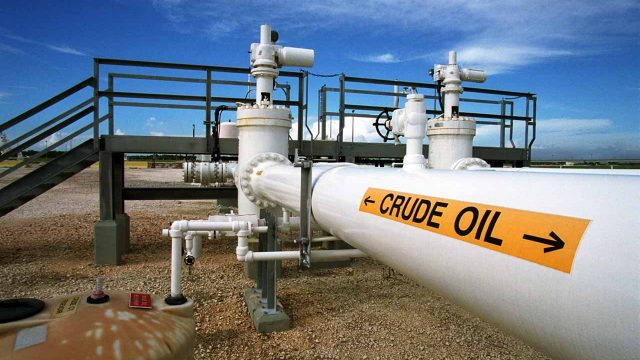Business
Dangote set to begin crude oil production in Niger Delta

The Dangote Refinery is set to commence crude oil production in the coming weeks, according to a new report by S&P Global.
The report revealed that Dangote’s upstream oil assets—Oil Mining Leases (OML) 71 and 72—are expected to begin operations before the end of the year, with an estimated output of 40,000 barrels of crude oil per day.
“Dangote’s upstream assets in the Niger Delta, Oil Mining Lease 71 and 72, could soon provide another supply injection, with production expected to start this month and reach up to 40,000 b/d,” the report stated.
It also noted that the Group President, Aliko Dangote, remains keen on pursuing additional upstream opportunities to expand the conglomerate’s portfolio.
While the refinery continues to scale up, sourcing adequate crude oil remains a challenge. However, Dangote recently secured a breakthrough agreement with the Nigerian National Petroleum Company Limited (NNPC) to ease supply constraints.
READ ALSO: Dangote’s wealth surges in latest Bloomberg’s Billionaire’s index
Under the existing “crude for naira” swap deal, NNPC supplies Dangote with 14 cargoes of crude oil—or their equivalent value in US dollars—in exchange for the same quantity of gasoline and gasoil provided in local currency.
Earlier reports indicated that NNPC signed a separate two-year crude supply contract with the refinery in August, ensuring a steady flow of feedstock to the 650,000-barrel-per-day facility in Lekki, Lagos.
The naira-for-crude arrangement was introduced by President Bola Tinubu last year amid crude shortages that hampered operations at the refinery. The policy directed that crude oil designated for domestic use be sold to local refineries, beginning with Dangote’s.
Dangote had previously commended President Tinubu for the intervention, describing it as instrumental in helping to reduce crude prices. Still, the company has faced persistent supply challenges, occasionally sourcing feedstock from the United States to sustain production.
Analysts believe the planned crude production from OMLs 71 and 72 will strengthen the refinery’s feedstock supply and stabilize fuel output.
The refinery has repeatedly grappled with crude scarcity as disagreements between it and local oil producers delayed transactions.





















